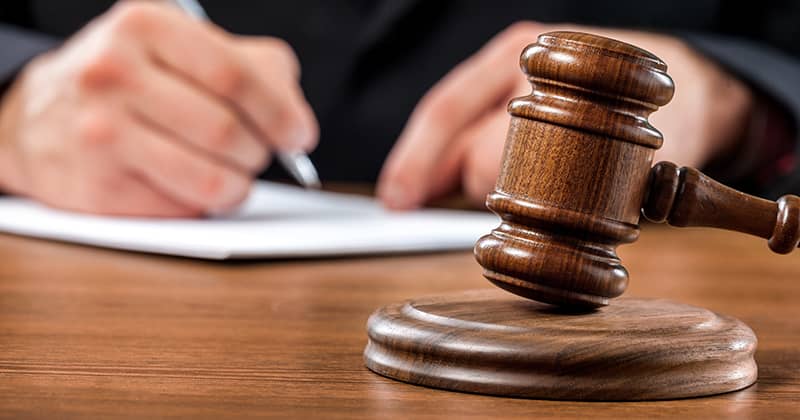Concerned about sexual harassment? Some sexual harassment scenarios are easy to identify, but people sometimes wonder whether certain circumstances exist which exclude the behavior from the laws prohibiting sexual harassment.
What if you were off the clock? What if you weren’t physically in your work building? Does your employer still owe you a duty of care in preventing or addressing sexual harassment in these situations?
If you believe workplace sexual harassment (after hours, outside work) may have occurred, speak with a California sexual harassment lawyer as soon as possible.
At Malk Law Firm, we know how difficult this situation can be. There’s often fear for the future and your career involved in bringing a sexual harassment complaint against someone at work. But you deserve to work in a safe, harassment-free environment—and the law is on your side.
Contact an experienced sexual harassment lawyer today to review your case.
Defining Sexual Harassment
Workplace sexual harassment is a form of discrimination that is prohibited by law. It involves unwelcome sexual advances, requests for sexual favors, and other verbal or physical conduct of a sexual nature.
This type of harassment affects an individual’s employment, unreasonably interferes with an individual’s work performance, or creates an intimidating, hostile, or offensive working environment. It is important to recognize that workplace sexual harassment can take many forms and is not limited to the examples given.
According to California’s Fair Employment Housing Act (FEHA), workplace sexual harassment can take two primary forms.
Quid Pro Quo
Sexual harassment that is “quid pro quo” usually manifests in the form of making an offer related to the individual’s employment in exchange for a sexual favor. This can be an offer of a promotion or even a promise to prevent termination if the favor is agreed on.
Hostile Work Environment
The types of sexual harassment that create a hostile work environment typically means that the employee feels unsafe on the job as a result of an offensive or sexual atmosphere.
This can include:
- Making inappropriate comments or gestures
- Displaying sexually suggestive objects or pictures
- Sexual jokes or innuendos
- Physical contact such as touching, hugging, or patting
- Threats or intimidation
- Unwanted visits or calls
Workplace Sexual Harassment: After Hours, Outside of Work?
Employees are entitled to a work environment free from sexual harassment. If they experience it at work, they should report sexual harassment to their employer as soon as possible.
But workplace sexual harassment isn’t confined to the work location, or even to work hours.
Some common examples of instances where workplace sexual harassment occurs outside of work hours and the physical workplace include:
- Work parties
- Business trips
- Business meals
- Fundraisers
- During a work commute
- Client meetings
- Interactions when leaving or arriving at work (i.e., parking lot harassment)
The reality is that sexual harassment can happen anywhere and at any time – even outside of the physical work location and/or beyond work hours.
How to Prove Sexual Harassment
Proving that sexual harassment occurred can be tricky. There are a few elements that you’ll need to establish in order to succeed in filing a claim and bringing legal action against your employer.
Harassment is Work-Related
For workplace-related harassment to have occurred, there must be connection between your employer and the perpetrator. This could mean that harasser is a co-worker, supervisor, customer, or even a vendor such as a delivery person or mail carrier.
Your Employer Knew (or Should Have Known About the Sexual Harassment)
An employer has liability for sexual harassment where it knew or should have known about the sexual harassment, but did not stop it. If the harasser is a supervisor, then the company is typically liable for sexual harassment since a supervisor is acting on behalf of the company. But whether the harasser is a co-worker, a customer, or a vendor, the company is only liable for the sexual harassment if it knew about the sexual harassment, or if it should have known about it.
Sexual Harassment Occurred
To prove that sexual harassment occurred, it’s important to have some evidence. This evidence could be photos of inappropriate behavior, footage from security camera, or copies of emails, text messages, or Slack conversations.
If you cannot obtain such proof, the best thing you can do is document every instance of harassment that occurs. Record dates, times, and details of every encounter and keep the documentation in a safe place.
You Suffered Emotional Distress or Other Damages
To prove that sexual harassment occurred, it’s important to have some evidence. This evidence could be photos of inappropriate behavior, footage from security camera, or copies of emails, text messages, or Slack conversations.
If you cannot obtain such proof, the best thing you can do is document every instance of harassment that occurs. Record dates, times, and details of every encounter and keep the documentation in a safe place.
You Suffered Emotional Distress or Other Damages
You must also be able to prove that you experienced a loss of some sort due to the defendant’s inappropriate actions. This loss can be financial, physical, or personal in nature and can include loss of job, denial of promotion, professional embarrassment,, or even emotional distress.
Reach Out to an Experienced California Sexual Harassment Lawyer
Workplace sexual harassment after hours or outside of work is just as serious as when it happens on the job. You’re entitled to a safe work environment that’s free of hostility and sexually inappropriate behavior.
If you’re ready to take legal action due to unwanted sexual advances or other inappropriate actions between those with professional relationships, contact us at the Malk Law Firm for a free consultation. We’re ready to review your case and get you the justice and compensation you deserve.
